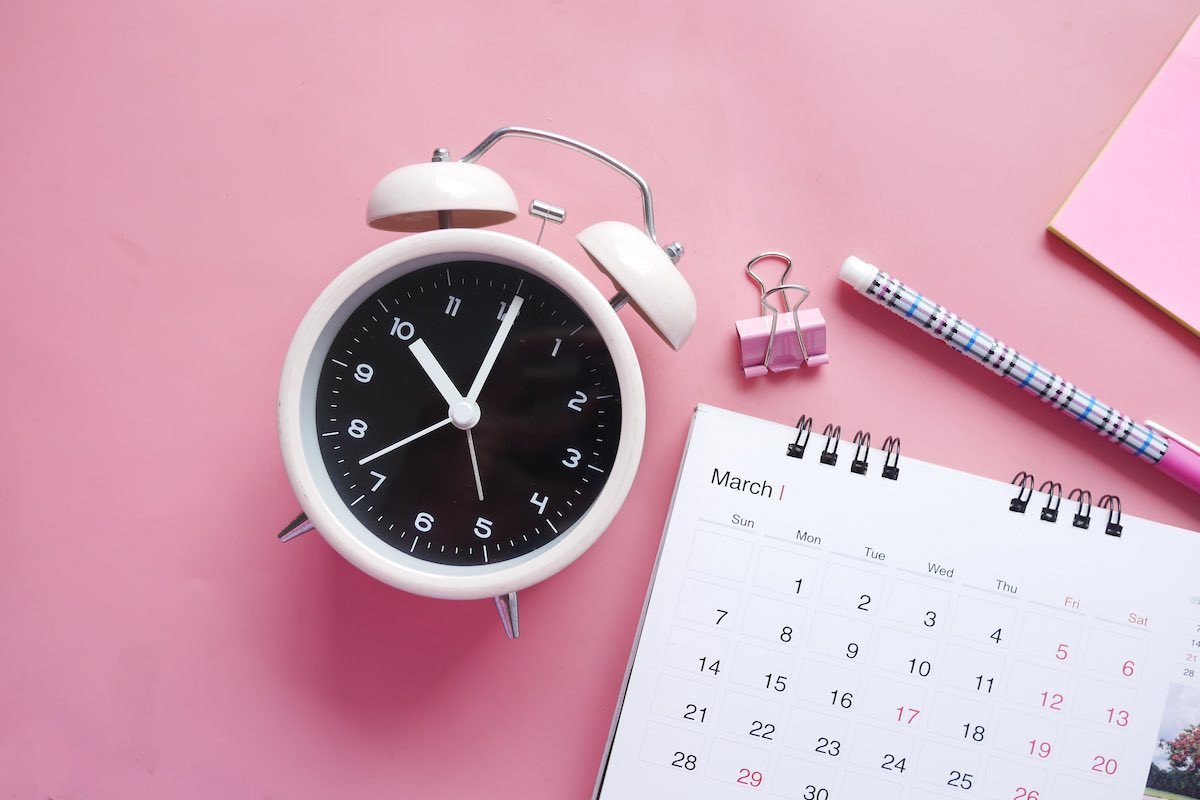This article by Avery Johnson was originally published on shesoulfood.com and is republished with permission.
On November 30th, I sent in my final credit card payment and watched my balance flip to zero.
After five years and accruing over $25,000 in credit card debt, I was done. I am debt-free.
I’m crying in a coffee shop as I write this because for years I was riddled with anxiety over money. I felt defined by the negative dollar signs, held back from a successful future, and weighed down by shame.
But since I started just over ten months ago, it’s over—and now I am free.
When I look back at the starting balance, I find it hard to believe how high it was. But then I do the math. Break $25,000 down over five years to about $5,000 of debt each year.
Then break it down further across the months—in actuality, I only needed to overspend by about $417 a month to eventually land myself $25,000 in the hole. And with late payments and interest rates, the problem only compounds. Debt doesn’t take much at all to accrue—which is a terrifying thought.
Table of Contents
I am no longer in debt, and
you don’t have to be either (and if you aren’t, don’t let yourself get there!). Over the past ten months, even despite the pandemic, I was able to make my debt payoff happen—no scams, no gimmicks, no get-rich-quick schemes.
Just some hard work, discipline, and tough lesson-learning. Here’s how I did it, and how you can too. Let’s get to work!
1. Cut Up Your Credit Cards
Credit cards are designed to make us fail. Read the history of credit cards—I dare you. They’re specifically designed to make money from us. They’re easy to use. They don’t require us to budget or say no to ourselves and our desires.
And once they rope us in, they hit us with buckets of interest, ready to drown us, even amid our fight to pay them off once and for all. No wonder the debt cycle is so disheartening!
When I started my payoff journey, I cut up each of my cards. I called to cancel each card as well, resisting their pressures to keep my accounts open in the name of improving my credit score.
Call Your Credit Card Company
One of the best moves I ever made was engaging in a conversation with each of my cardholders to come up with a payment plan. Most credit card companies will work with you to develop a reasonable monthly payment and interest reduction when you close your card—you need only ask.
I was able to greatly reduce the interest payment on my Wells Fargo credit card and Chase even did away with my interest payments in their entirety.
That’s right: 0 percent interest if I was able to keep up with the monthly payments we established together, and no penalty for paying off the balance sooner than my plan’s end date.
2. Pay With Cash (or Debit)
Once your credit cards are gone, you’re forced to learn the value of a dollar the hard way—by passing over bills to the cashier or swiping a debit card and watching funds drop directly from your bank account. It’s a great lesson to learn and
helps with budgeting immensely.
If you claim credit cards are safer because they limit direct access to your funds in the case of theft, I call BS. Debit cards are protected by banks.
My card was compromised twice this past year and I was able to work with my bank—I switched to Ally online banking—and saw my money returned within days. I also receive alerts of all spending directly on my Apple Watch, so nothing gets by me.
Part of the payoff process requires
learning better money habits to prevent debt from ever happening again. Paying with cash helps develop these skills in a way using credit cards cannot.
3. Gather Your Support Team
As with any goal, having a solid support system is key to keeping you going.
When I first decided I needed to get serious about being debt-free, I joined Financial Peace University and met with a local support group to walk through the class together.
We learned valuable lessons for each stage of our financial journey—from
debt payoff to budgeting wisely, saving for the future and emergencies, and giving generously. Along with my FPU group, my dad was instrumental in encouraging me in my payoff journey by introducing me to tools and books in the first place and checking in on my progress.
I also enlisted the help of a couple of friends and my boyfriend to hold me accountable in my spending and just cheering me on in general.
Lastly, I had to be my own dang cheerleader. The best way to hold myself accountable and celebrate each small win along the way was with a debt tracker.
I drew a bar graph in my bullet journal and scribbled it in each time I made a payment. Blacking out that chart felt oh so good!
4. Don't Consolidate Your Debt
There are many options out there to consolidate debt into one card or into personal loans—if you’re in debt I am sure you receive plenty of offers in the mail.
I was surprised to learn this isn’t necessarily the best route to take. In the end, consolidation may actually lead you to pay more over time because it prolongs your payoff—even while promising lower interest rates and smaller monthly payments.
Another reason not to lump all your debts together is the magic of the debt snowball method. The snowball method simply means paying off your debts from smallest to largest dollar amount rather than by highest to lowest interest rates.
Make the minimum payments each month on all of your debts, but attack your smallest one with a vengeance until it is gone! Then move onto the second smallest, and so on.
The secret lies in
the motivation factor. The taste of victory you feel with each payoff empowers you to take control of your money and spurs you on toward your goal. It works.
5. Reduce Your Expenses
If you want to see change, you have to make a change. If you want to have a different life, you have to first live differently. I had to take a hard look at my spending to see where my money was both coming from and going.
Along with budgeting on groceries (aka not always shopping at Whole Foods), cooking more instead of eating in restaurants, getting rid of subscriptions I didn’t really need, and ceasing my Lululemon habit, I ended up making a heart-wrenching decision: I moved away from my
beloved home in Hawaii to live with my parents in my hometown of Denver.
I know I am blessed in this regard—not everyone has the luxury of moving back home. I get it. I am full of gratitude that I had this opportunity. However, it was not without sacrifice.
I gave up the life I had created and loved on the island and bid farewell to friends who had become family, all because I knew this was where my journey needed to take me if I wanted to experience financial freedom and better mental health.
If moving in with family isn’t an option for you, seek out other affordable options such as finding a roommate or a less expensive place to live. Sometimes this means
a new city entirely.
Debt isn’t all about big spending. Look out for tiny expenditures such as Starbucks (guilty), lunches out, and multiple streaming subscriptions. These seemingly small spends add up over time and take you further from your goals.
Remember, to land myself in $25,000 of debt I needed only overspend about $415 during the course of five years…and a $5 daily coffee alone ends up being a $150 a month habit.
I’m not saying never to treat yourself. Just do so responsibly and within your means. Sometimes, this means foregoing the vacation, the big dinner out, the hundredth pair of leggings.
But I made sure I still had room in my monthly budget for happy hours with friends, a new piece of clothing here and there, and plane tickets to visit my (no longer long-distance) boyfriend. Decide what means most to you, keep your main goal in mind, and go from there.
6. Increase Your Income
Okay, sure, this is more of a no-brainer, but it was certainly one of my biggest “success secrets”—I got a new job. In Hawaii, I was struggling to make ends meet as a fitness coach.
I taught at several studios daily and served cocktails at a club by night. I was constantly exhausted and constantly strapped for cash. I knew this wasn’t sustainable, not only as a lifestyle, but it would never lead me to financial freedom.
When I moved back to Denver, I began applying for jobs with a vengeance. I emailed and called several contacts, landing some freelance writing projects that kept me afloat before I landed my current job as a copywriter for a luxury travel club.
I taught a few F45 classes each week (pre-pandemic) and kept up with my freelance gigs even once I got my job, directing each extra paycheck right into my debt payoff plan.
Seeing the balances drop drastically was more than enough of a motivator, making my extra hours of work worth it.
If finding a new, higher-paying job isn’t an option for you, consider
negotiating a pay raise when appropriate or working overtime or holiday hours when possible. There’s always an opportunity for extra work.
Taking on a side hustle is arguably one of the best ways to make some extra cash. It can also be a chance to explore another interest or passion of yours while helping you pay down your debt even quicker.
Yes, it may be a sacrifice—but it is temporary, and the immense weight lifted off your shoulders when you pay off your final balance is oh so worth it.
In Conclusion
Here’s the bottom line. It may seem trite, but it is true: if I can do it, YOU CAN DO IT. I promise. I am no money guru or budgeting expert. I still fall victim to purchasing one too many Lululemon Align pants.
I still enjoy craft cocktails and nights out at restaurants. But now I do so with freedom, within a budget, stress-free—with no balances to weigh me down.
I let my debt define me for far too long. I remember sitting on a mere $8,000 of debt and wanting to cry. I wish I could tell 25-year-old Avery to snap out of it!
Instead, I took the ignorance is bliss route and watched the dollar signs balloon rapidly. Don’t let this happen to you! Start today. Even small baby steps will take you far on your path to financial freedom.
Cheering for you!








